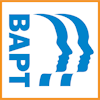About Psychological Type
Although there are a variety of personality theories out there - e.g. trait theories, behavioural theories, social learning theories, humanistic theories, to name a few - BAPT is primarily interested in Type Theory. There are two major theories within the type arena: Jungian theory, which includes adaptations such as Myers-Briggs, Type Dynamics Indicator, Insights Discovery etc; and the Enneagram, which has several variations depending on the particular school of thought, such as the Riso-Hudson approach and the Helen Palmer approach.
We can think of Jungian Type in terms of how we prefer to go about life: how we most naturally interact, process information, give value or meaning to things. Enneagram type is more the 'why' we do what we do. Hence, while the two theories can be used very effectively on their own, they can be very interesting when used together.
Type theories suggest that our psychological preferences are inborn and will develop over time. How somebody's Type develops is influenced by their external environment. Thus, even Type theory is subject to the nature vs nurture debate. See the pages in this section for more information.
Jungian-based Type
Type theory is inspired by the work of Carl Jung. This page describes the main concepts behind Type theory, with short descriptions of the dichotomies and of each of the 16 types.
The 16 Types in Brief
Here are brief thumbnail descriptions of each of the 16 Types.
16 Types: Key Words
A few key descriptor words for the 16 types, and each links to a longer description.
Type Lenses
Jungian Type is usually explored using the MBTI and other similar questionnaires.
Type Books and Links
Recommended books and links to find out more about Type
Enneagram Type
The Enneagram is a psychological type system that has 9 broad personality types.

